Two poems, by Linda Hogan and Alberto Ríos, follow wolves, jackrabbits, and other animals across the harsh Great Plains and Sonoran Desert. Both poets join wildlife biologist Jeff Corwin, film director Chris Eyre, Native American scholars Philip Deloria and Stephanie Fitzgerald, and a chorus of students to discuss how the poems call back difficult histories of human migration in the American west.
Interested in learning more? Poetry in America offers a wide range of courses, all dedicated to bringing poetry into classrooms and living rooms around the world.
by Alberto Ríos and Linda Hogan
Bear Fat
BY LINDA HOGAN
When the old man rubbed my back
with bear fat
I dreamed the winter horses
had eaten the bark off trees
and the tails of one another.
I slept a hole into my own hunger
that once ate lard and bread
from a skillet seasoned with salt.
Fat was the light
I saw through
the eyes of the bear
three bony dogs leading men
into the grass-lined caves of sleep
to kill hunger
as it slept itself thin.
They grew fat
with the swallowed grease.
They ate even the woodash
after the fire died
and when they slept,
did they remember back
to when they were wolves?
I am afraid of the future
as if I am the bear
turned in the stomach
of needy men
or the wolf become a dog
that will turn against itself
remembering what wildness was
before the crack of a gun,
before the men tried to kill it
or tame it
or tried to make it love them.
Rabbits and Fire
BY ALBERTO RIOS
Everything’s been said
But one last thing about the desert,
And it’s awful: During brush fires in the Sonoran desert,
Brush fires that happen before the monsoon and in the great,
Deep, wide, and smothering heat of the hottest months,
The longest months,
The hypnotic, immeasurable lulls of August and July —
During these summer fires, jackrabbits —
Jackrabbits and everything else
That lives in the brush of the rolling hills,
But jackrabbits especially —
Jackrabbits can get caught in the flames,
No matter how fast and big and strong and sleek they are.
And when they’re caught,
Cornered in and against the thick
Trunks and thin spines of the cactus,
When they can’t back up any more,
When they can’t move, the flame —
It touches them,
And their fur catches fire.
Of course, they run away from the flame,
Finding movement even when there is none to be found,
Jumping big and high over the wave of fire, or backing
Even harder through the impenetrable
Tangle of hardened saguaro
And prickly pear and cholla and barrel,
But whichever way they find,
What happens is what happens: They catch fire
And then bring the fire with them when they run.
They don’t know they’re on fire at first,
Running so fast as to make the fire
Shoot like rocket engines and smoke behind them,
But then the rabbits tire
And the fire catches up,
Stuck onto them like the needles of the cactus,
Which at first must be what they think they feel on their skins.
They’ve felt this before, every rabbit.
But this time the feeling keeps on.
And of course, they ignite the brush and dried weeds
All over again, making more fire, all around them.
I’m sorry for the rabbits.
And I’m sorry for us
To know this.
Bear Fat
BY LINDA HOGAN
When the old man rubbed my back
with bear fat
I dreamed the winter horses
had eaten the bark off trees
and the tails of one another.
I slept a hole into my own hunger
that once ate lard and bread
from a skillet seasoned with salt.
Fat was the light
I saw through
the eyes of the bear
three bony dogs leading men
into the grass-lined caves of sleep
to kill hunger
as it slept itself thin.
They grew fat
with the swallowed grease.
They ate even the woodash
after the fire died
and when they slept,
did they remember back
to when they were wolves?
I am afraid of the future
as if I am the bear
turned in the stomach
of needy men
or the wolf become a dog
that will turn against itself
remembering what wildness was
before the crack of a gun,
before the men tried to kill it
or tame it
or tried to make it love them.
Rabbits and Fire
BY ALBERTO RIOS
Everything’s been said
But one last thing about the desert,
And it’s awful: During brush fires in the Sonoran desert,
Brush fires that happen before the monsoon and in the great,
Deep, wide, and smothering heat of the hottest months,
The longest months,
The hypnotic, immeasurable lulls of August and July —
During these summer fires, jackrabbits —
Jackrabbits and everything else
That lives in the brush of the rolling hills,
But jackrabbits especially —
Jackrabbits can get caught in the flames,
No matter how fast and big and strong and sleek they are.
And when they’re caught,
Cornered in and against the thick
Trunks and thin spines of the cactus,
When they can’t back up any more,
When they can’t move, the flame —
It touches them,
And their fur catches fire.
Of course, they run away from the flame,
Finding movement even when there is none to be found,
Jumping big and high over the wave of fire, or backing
Even harder through the impenetrable
Tangle of hardened saguaro
And prickly pear and cholla and barrel,
But whichever way they find,
What happens is what happens: They catch fire
And then bring the fire with them when they run.
They don’t know they’re on fire at first,
Running so fast as to make the fire
Shoot like rocket engines and smoke behind them,
But then the rabbits tire
And the fire catches up,
Stuck onto them like the needles of the cactus,
Which at first must be what they think they feel on their skins.
They’ve felt this before, every rabbit.
But this time the feeling keeps on.
And of course, they ignite the brush and dried weeds
All over again, making more fire, all around them.
I’m sorry for the rabbits.
And I’m sorry for us
To know this.
“Bear Fat” is used by permission from The Book of Medicines (Coffee House Press, 1993) Copyright © 1993 by Linda Hogan.
“Rabbits and Fire” is used by permission of Alberto Ríos.
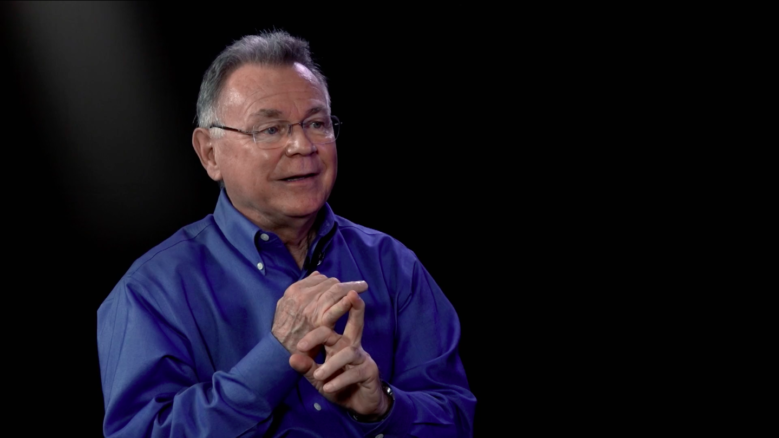
"This is an earth tale. This is very much in the indigenous traditions that are part of my make-up. My family were all great storytellers. My brother was in the Forest Service, and he would come back and regale me with stories of fire." Alberto Ríos, in his poem "Rabbits and Fire," looks frankly at the harshness of nature and struggle for life in the desert, tracing at the same time the histories of Indigenous peoples in the American Southwest.
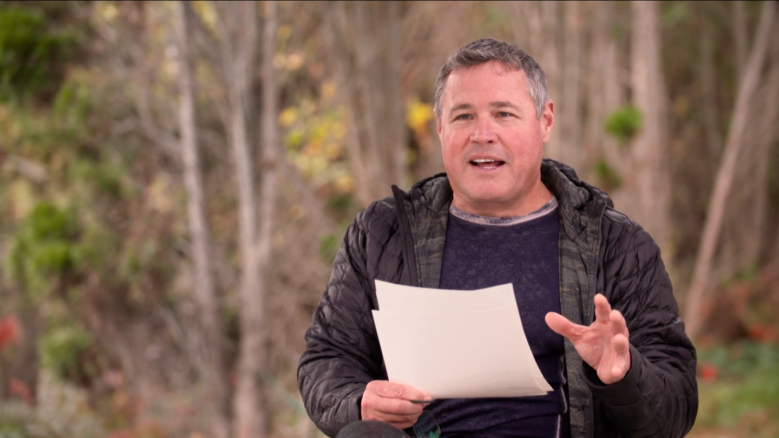
"Even the most beautiful things can be incredibly dangerous in the desert." - Wildlife biologist and conservationist Jeff Corwin
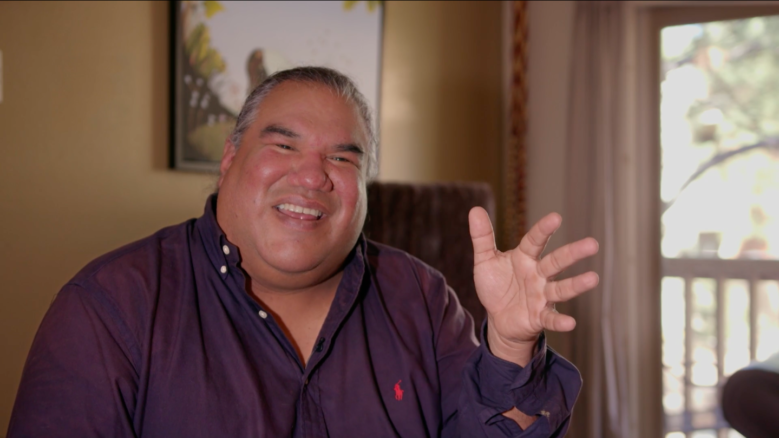
Filmmaker Chris Eyre reflects on the extremes of Alberto Ríos' poem "Rabbits and Fire", on the scorching sun of the Sonoran desert and the struggles of its animal inhabitants to survive: "Survival and the need to eat and drink, that's where the strongest source material comes from."
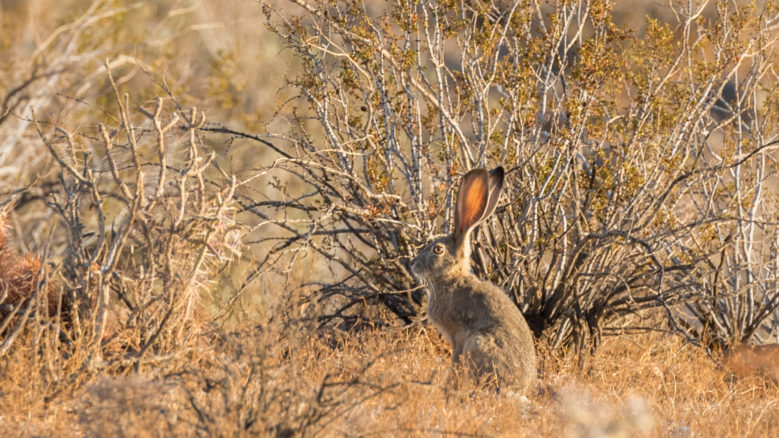
"Mortality or death is a part of the cycle of this environment. Jackrabbits, cacti—and dying—are also contributing to life." - Wašíw Historian Patrick DéɁileligi Burtt. Image courtesy of NPS / Hannah Schwalbe.
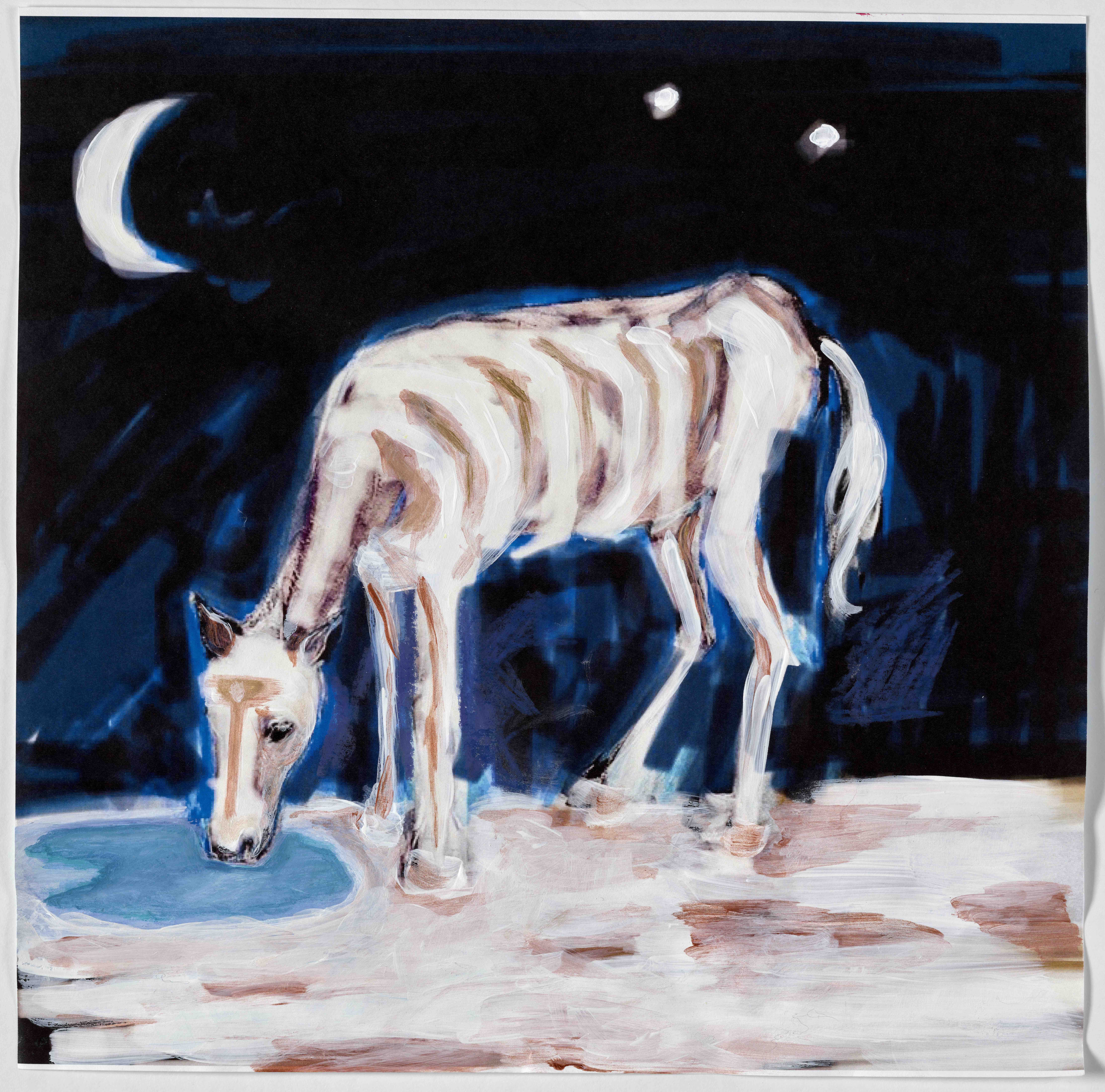
"Poetry takes you into another part of yourself, a dreamspace. It takes you so deep that you don't always know you're going there." Linda Hogan, in her poem "Bear Fat," finds in poetry a way to meditate on the often painful experiences and histories of Indigenous peoples in North America. Image credit: Wendy Ultan.
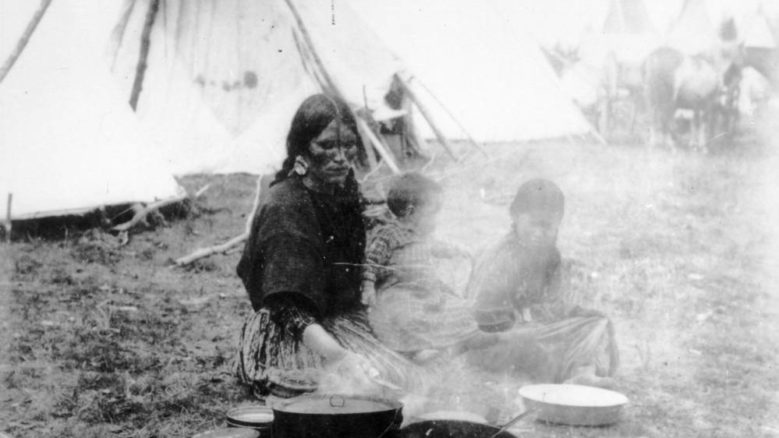
The theft of land and forced relocation of Indigenous peoples violently disrupted their sovereignty and ways of life. Literature Professor Stephanie Fitzgerald encounters the effects of this violence in Linda Hogan's poem "Bear Fat": "The poem is evolving from a specific, very human domestic scene of humans caring for each other—into this world of hunger." Image credit: Denver Public Library Special Collections.
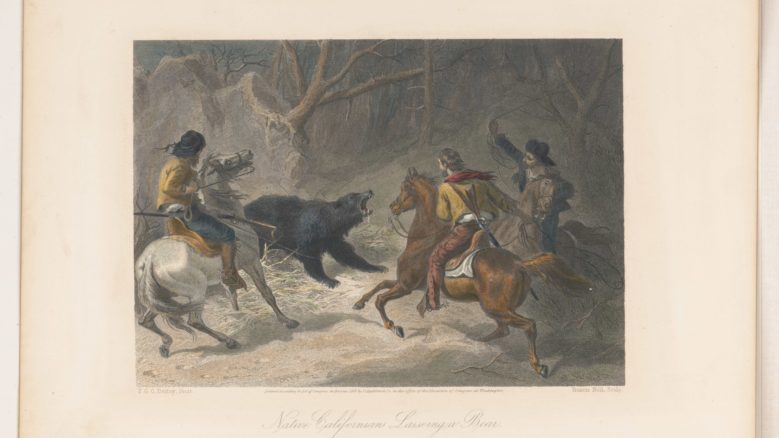
George Armstrong Custer postures with a bear he killed in the Black Hills of South Dakota, 1874. The relationship of many Indigenous peoples to animals like the bear is quite different: as student Cajaun Cleveland remarks, "In the Navajo culture, we couldn't hunt bears because bears were a protector for us." Linda Hogan's poem "Bear Fat" reflects on the different ways that Indigenous and colonizing peoples think about nature and our place within it. Image courtesy of Library of Congress.
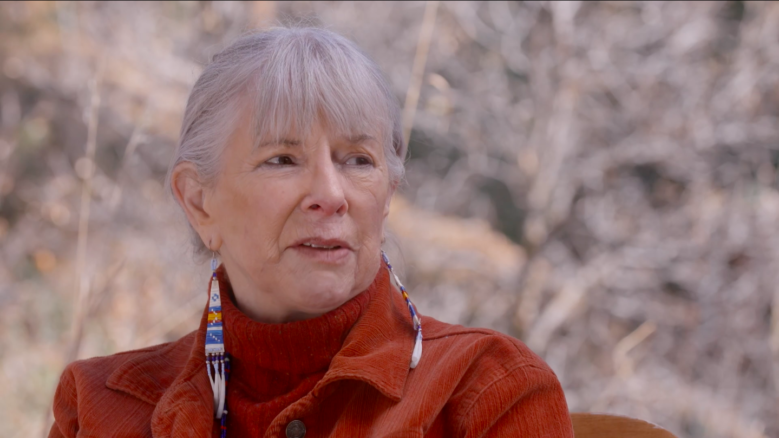
"My family are Oglala Lakota and I'm a Chickasaw. We had separate trails of tears. We paid for food in advance, and the food didn't arrive where it was specified. We wanted to stop and hunt, and that wasn't permitted by the military. The elders usually passed away along the way and then, you know, infants and children. Reaching Oklahoma, there wasn't anything there." - Poet Linda Hogan
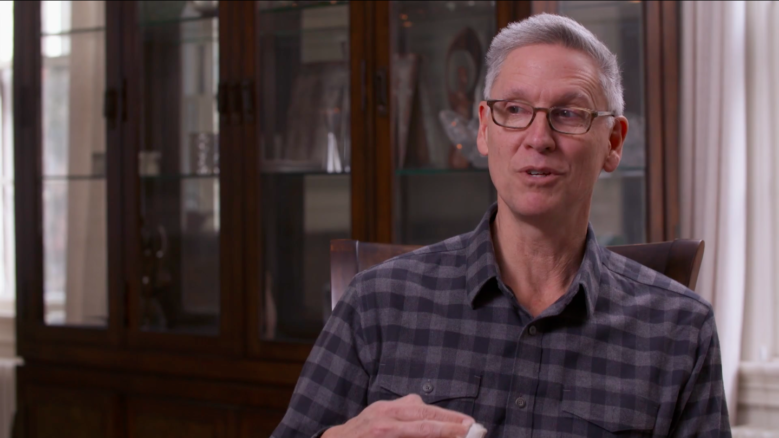
Historian Philip Deloria links the language of predator and prey in Linda Hogan's poem "Bear Fat" with the violence done to Indigenous peoples by colonizing Americans and Europeans: "It's the moment of conquest, right? Let's kill it. Right. And then what's the next moment? It's the moment of taming. It's like, we're going put you on a reservation. We're going to take away your language and your spirituality."